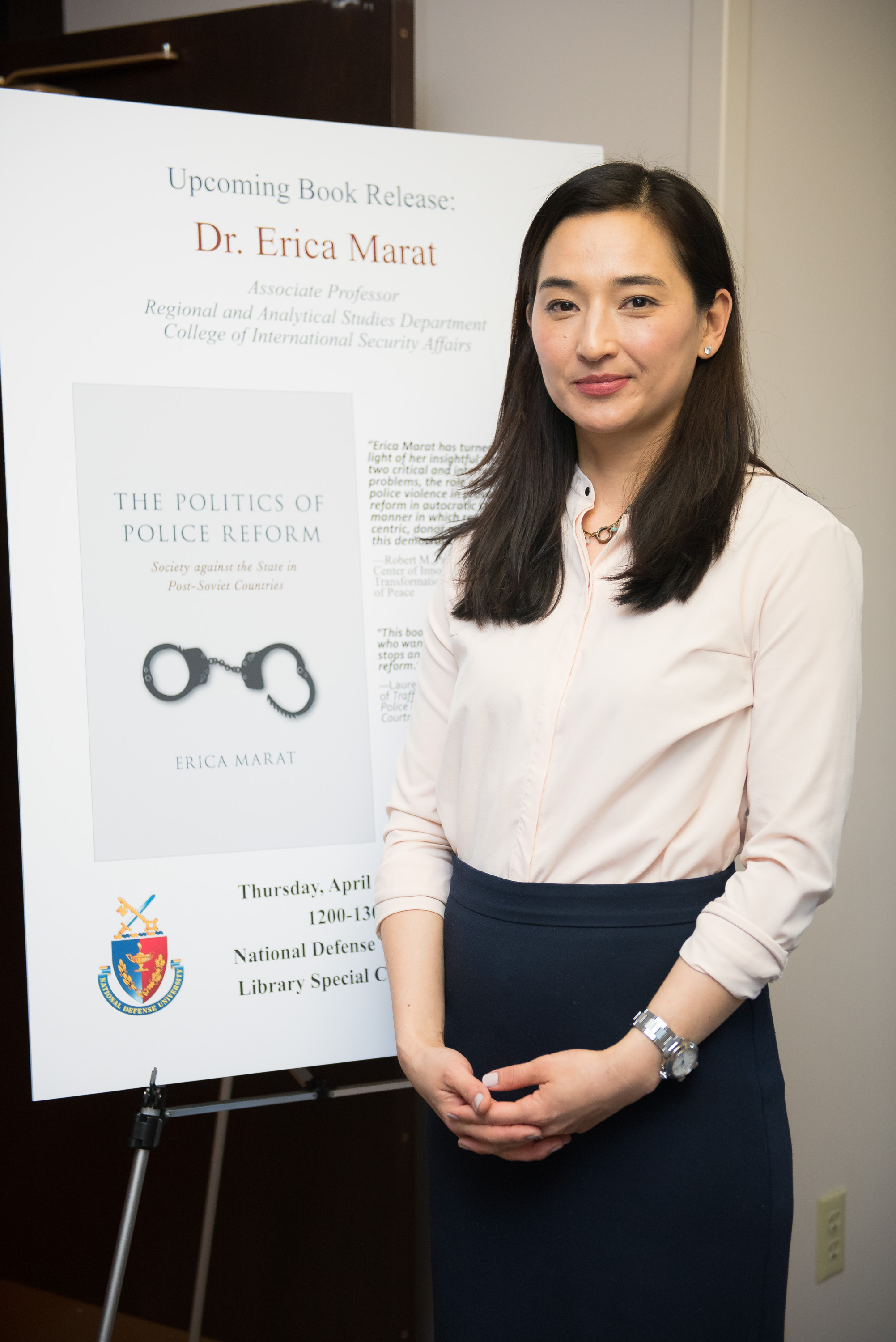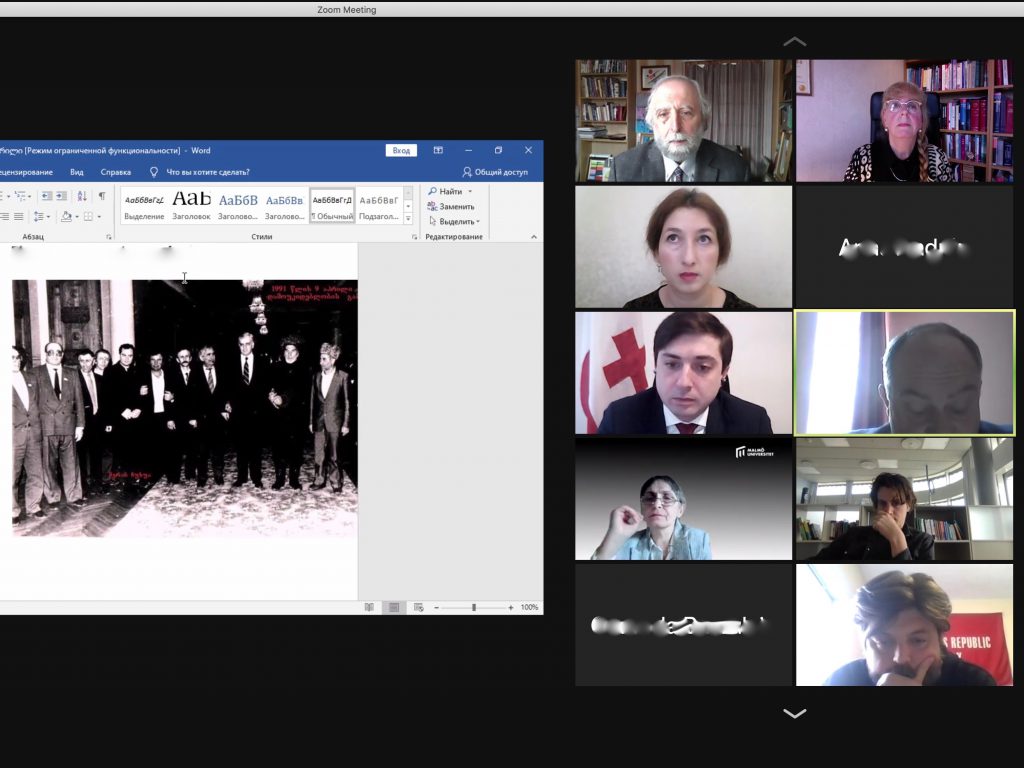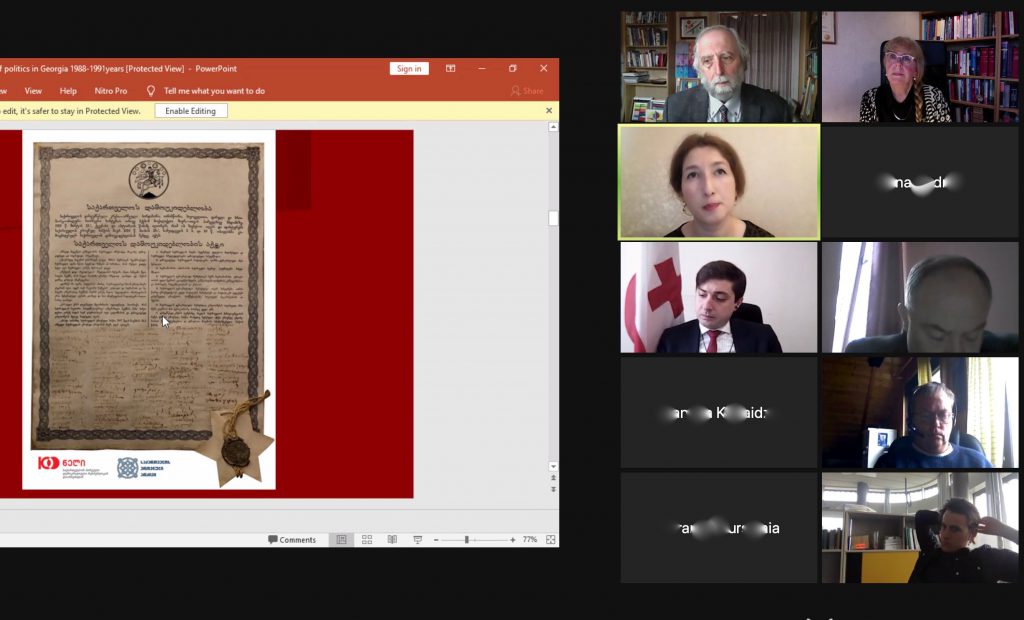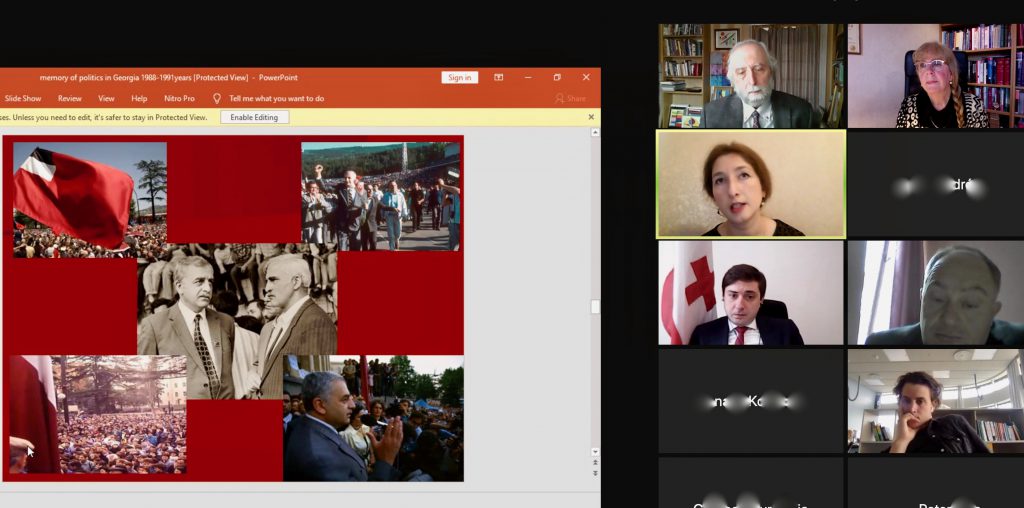I ett samarrangemang med Norsk Utenrikspolitisk Institutt (NUPI) bjuder RUCARR in till ett Zoom-seminarium 9 november på temat: ”Säkerhetspolitik i Sydkaukasien”.
Seminariet äger rum online genom Zoom. Förhandsregistrera dig här för att kunna ansluta. Diskussionen kommer att hållas på svenska. Seminariet stöds av Tidsskriftforeningen/Fritt Ord och utgår från en temasektion som tidskriften Nordisk Østforum publicerade i september 2020:
Sydkaukasien betraktas ofta som en krutdurk. Regionen innehåller tre stater (Armenien, Azerbajdzjan, Georgien) men också tre icke erkända ”stater” (Abchazien, Nagorno-Karabakh, Sydossetien) som förlitar sig på stöd utifrån. Bland de externa intressenterna har både Ryssland och EU liksom Turkiet en framträdande roll, vilket de senaste veckornas stridigheter i och kring Nagorno-Karabach illustrerar. Detta regionala säkerhetskomplex är ämnet för dagens seminarium. Paneldeltagare från FOI, Malmö universitet och Uppsala universitet kommer att dela med sig av sin kunskap om Kremls intressen i Kaukasien, EU:s påverkansmöjligheter samt den svåra geopolitiska balansgång som lokala aktörer står inför.
Program
10:00-10:05 Moderator Christofer Berglund hälsar välkommen
10:05-10:35 Paneldeltagarnas presentationer
10:35-11:00 Diskussion och frågor från åhörarna
Paneldeltagare
Jakob Hedenskog arbetar på enheten för säkerhetspolitik, Totalförsvarets forskningsinstitut (FOI). Han specialiserar sig på rysk utrikespolitik och länderna i Rysslands närområde.
Michel Anderlini är doktorand på Institutionen för globala politiska studier, Malmö universitet. Hans avhandlingsprojekt handlar om relationen mellan EU och Georgien.
Per Ekman är doktorand på Statsvetenskapliga institutionen, Uppsala universitet. Hans avhandlingsprojekt handlar om utrikespolitiska strategier i Ukraina och Georgien.
Li Bennich-Björkman är Skytteansk professor i statskunskap, Uppsala universitet. Hon leder ett VR-finansierat forskningsprojekt om säkerhetspolitiska perceptioner i Sydkaukasien.




 Dr. Marat’s research focuses on violence, mobilization and security institutions in Eurasia, India, and Mexico. During our seminar, she will present her book – The Politics of Police Reform: Society against the State in Post-Soviet Countries. What does it take to reform a post-Soviet police force? Across the region, the countries inherited remarkably similar police forces with identical structures, chains of command, and politicized relationships with the political elite. Centralized in control but decentralized in their reach, the police remain one of the least reformed post-communist institutions. As a powerful state organ, the Soviet-style militarized police have resisted change despite democratic transformations in the overall political context, including rounds of competitive elections and growing civil society. This book explores the conditions in which a meaningful transformation of the police is likely to succeed and when it will fail. Based on the analysis of five post-Soviet countries (Ukraine, Georgia, Kyrgyzstan, Kazakhstan, and Tajikistan) that have officially embarked on police reform efforts, the book examines various pathways to transforming how the state relates to society through policing. It develops a new understanding of both police and police reform. Departing from the conventional interpretation of the police as merely an institution of coercion, this study defines it as a medium for state-society consensus on the limits of the state’s legitimate use of violence. Police are, according to a common Russian saying, a “mirror of society”—serving as a counterweight to its complexity. Police reform, in turn, is a process of consensus-building on the rationale of the use of violence through discussions, debates, media, and advocacy.
Dr. Marat’s research focuses on violence, mobilization and security institutions in Eurasia, India, and Mexico. During our seminar, she will present her book – The Politics of Police Reform: Society against the State in Post-Soviet Countries. What does it take to reform a post-Soviet police force? Across the region, the countries inherited remarkably similar police forces with identical structures, chains of command, and politicized relationships with the political elite. Centralized in control but decentralized in their reach, the police remain one of the least reformed post-communist institutions. As a powerful state organ, the Soviet-style militarized police have resisted change despite democratic transformations in the overall political context, including rounds of competitive elections and growing civil society. This book explores the conditions in which a meaningful transformation of the police is likely to succeed and when it will fail. Based on the analysis of five post-Soviet countries (Ukraine, Georgia, Kyrgyzstan, Kazakhstan, and Tajikistan) that have officially embarked on police reform efforts, the book examines various pathways to transforming how the state relates to society through policing. It develops a new understanding of both police and police reform. Departing from the conventional interpretation of the police as merely an institution of coercion, this study defines it as a medium for state-society consensus on the limits of the state’s legitimate use of violence. Police are, according to a common Russian saying, a “mirror of society”—serving as a counterweight to its complexity. Police reform, in turn, is a process of consensus-building on the rationale of the use of violence through discussions, debates, media, and advocacy.


 Welcome to the RUCARR zoom seminar on February 9, 15.15.
Welcome to the RUCARR zoom seminar on February 9, 15.15. Prof. Stephen Jones, Mount Holyoke College (US) will give a seminar on his current research on the First Democratic Republic of Georgia (1918-21) and its significance to the history of European social democracy.
Prof. Stephen Jones, Mount Holyoke College (US) will give a seminar on his current research on the First Democratic Republic of Georgia (1918-21) and its significance to the history of European social democracy. You are invited to attend the RUCARR online seminar on October 6 The Caucasus in the Post-Covid Multi-Polar World with Dr. Lincoln Mitchell, affiliated to Arnold A. Saltzman Institute of War and Peace Studies, Columbia University (bio below).
You are invited to attend the RUCARR online seminar on October 6 The Caucasus in the Post-Covid Multi-Polar World with Dr. Lincoln Mitchell, affiliated to Arnold A. Saltzman Institute of War and Peace Studies, Columbia University (bio below).


